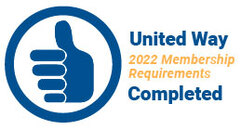|
As discussed last week, addiction treatment addresses the many issues related to learning to live without drugs. It can take a variety of forms and there is no one path to recovery.
Depending on the length and severity of addiction and type of substance used, different lengths, and types of treatment are available. The most intense treatments are residential or inpatient programs where the person goes away for a period of time to live at a treatment facility. Some people find it helpful to be removed from the environment where they were involved with drug use to begin recovery. During this time the individual is under constant supervision, receiving multiple daily sessions of group and individual counseling and therapy, as well as a variety of support services. Residential treatment can last anywhere from thirty days to two years. Research on addiction treatment suggests that programs less than 90 days rarely achieve long term success. https://www.drugabuse.gov The next level of treatment is IOP or intensive outpatient services. In IOP, the individual can live at home, maintain a job and rebuild his life within his community with the support received from the program. The person is required to attend counseling sessions daily or several times a week. The number of sessions required generally decreases as the person progresses. The next step down is outpatient services where the individual attends weekly sessions for counseling and support. The advantage of outpatient therapies can be that the individual learns and practices living in recovery in the community where he lives. Some individuals find it very difficult to maintain recovery surrounded by the people and places where they used drugs and for them a residential treatment center may be most appropriate. Within these categories are faith based and secular treatments. There are abstinence-based programs and ones that use medication assisted treatment. Cognitive based therapy is widely used in treating addiction in individual and group therapy. A central element of CBT is anticipating likely problems and enhancing patients’ self-control by helping them develop effective coping strategies. Specific techniques include exploring the positive and negative consequences of continued drug use, early recognition of cravings, identifying situations that might trigger drug use, and developing strategies for coping with cravings and avoiding those high-risk situations. Other treatments focus on motivation such as contingency management principles which give tangible rewards to reinforce positive behaviors such as abstinence. These can be highly effective in keeping people in treatment and maintaining sobriety. Regardless of the treatment form, the goal is to provide the person with counseling, support and connections to necessary services to maintain the hard work of recovery.
0 Comments
Your comment will be posted after it is approved.
Leave a Reply. |
AuthorLynn Saylor is the AmeriCorps member working with the United Against Opioid Abuse Initiative alongside the White County United Way. She is a major facilitator of the United Council on Opioids serving White County and a regular contributor to local media. Archives
October 2020
Categories
All
|

 RSS Feed
RSS Feed
